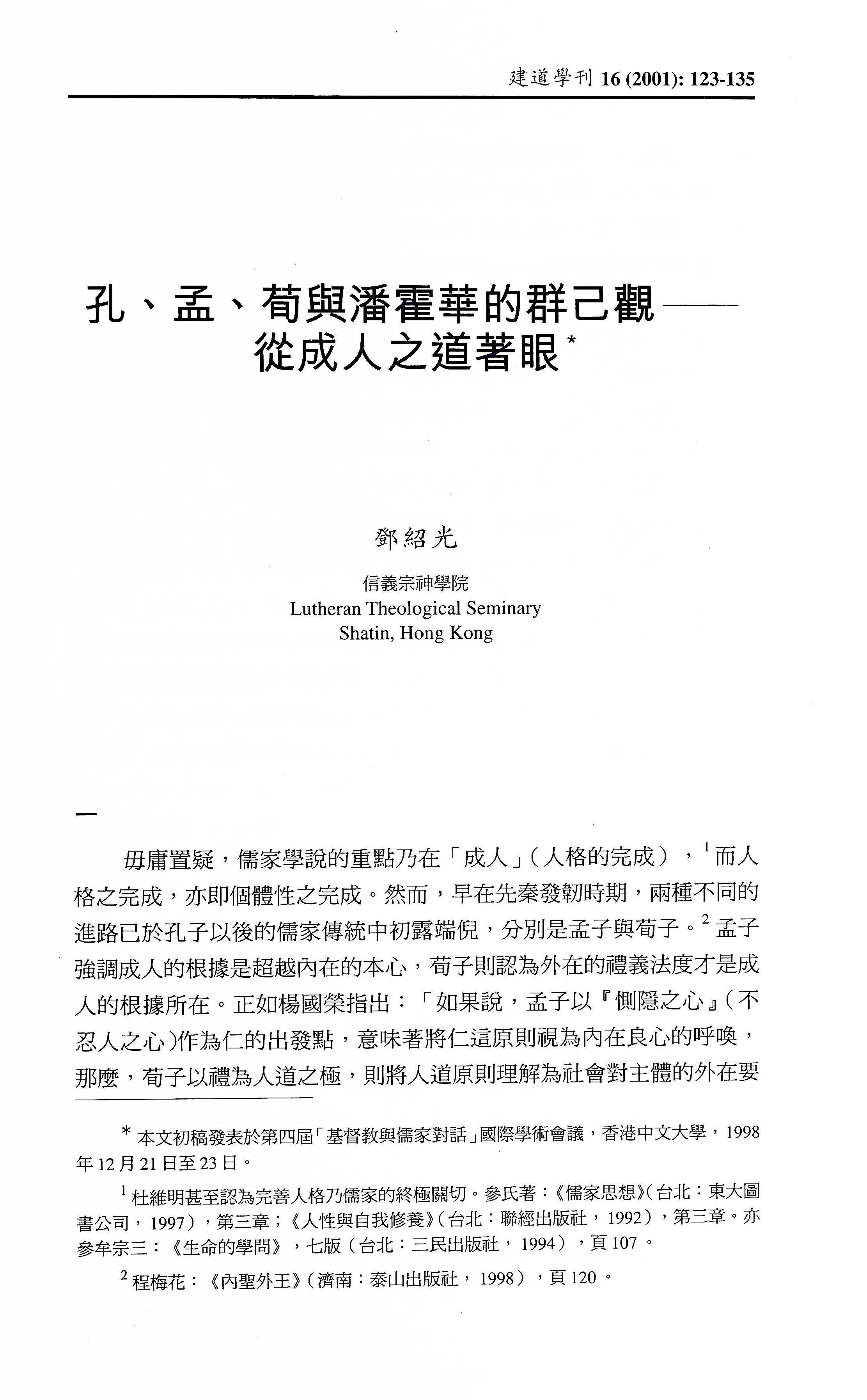孔、孟、荀與潘霍華的群己觀──從成人之道著眼/鄧紹光
撮要
先秦儒家學者孟子和荀子分別就孔子的仁和禮發展成人的思想。孟子走的是 內在超越的路數,荀子走的是外在盡禮的路數;前者重視成人過程中個人以心為性的主體性,後者著重成人過程中個人間以禮為中介的互動性。然而,前者怎樣 才可避免不滑進主體獨大而吞睦他者的境況中?後者怎樣才可避免個體不倫為由 禮所客觀化的關係的構成物?這是孟子和荀子的成人思想有待解決的問題。德國神學家潘霍華以他者為首出的神學思想,目的就是要同時建立個體和社群。「我」之所以意識自我而有別於他者,乃在於與一異於自己又不能為「我」所僭越的他者相遇。這作為界限的他者同時是個體和社群建立的首要條件。對於成人來說, 要確保個體不吞瞪他者又不喪失於社群中,潘霍華的思想是啟發儒家思想自身之轉化的參考例子。
ABSTRACT
Confucianism before the Qin Dynasty was divided into two trends after Confucius which were represented by Mencius and Hsuentze. On the issue of humanization, Mencius developed Confucius’ ren (仁)as xin (心)to emphasize individual immanent transcending; while Hsuentze developed Confucius’ li (禮)as the mediator for individual humanization through interactions. However, how can the former not shift into a position of subjectivism so as to dissolve the other? How can the latter not fall into the trap that individuals become the products of relationship? The German theologian D. Bonhoeffer took the priority of the other as the condition for the construction of individual and community. “I” is conscious of itself as “I” who is different from others only when this I encounters an alien other who is not able to be transgressed by this I. It is the barrier of the other establishes simultaneously the individual and community. On the issue of humanization, the above thinking of Bonhoeffer can be an example of illuminating the transformation of Confucianism so as to limit the individual from transgressing the other, and at the same time protect the individual from losing itself in the community.
原載於《建道學刊》16期(2001年7月),頁123-135。
Latest Articles
新手牧者研究計劃(三):新手牧者的身心靈狀態 / 盧慧儀
2025 年 11 月 19 日
個體與關係:滕近輝思想中「深化」的靈性觀 / 倪步曉
2025 年 11 月 18 日
香港九龍塘基督教中華宣道會之起源和發展史/陳智衡
2025 年 10 月 20 日
Highlights
[電子書]困境與抉擇:「建道研究中心30週年誌慶」跨學科研討會論文集/廖炳堂、倪步曉主編
2025 年 1 月 2 日
從梧州到長洲:建道神學院125年的挑戰與恩典 / 陳智衡
2023 年 10 月 1 日
微小教會的見證/高銘謙
2023 年 6 月 1 日







